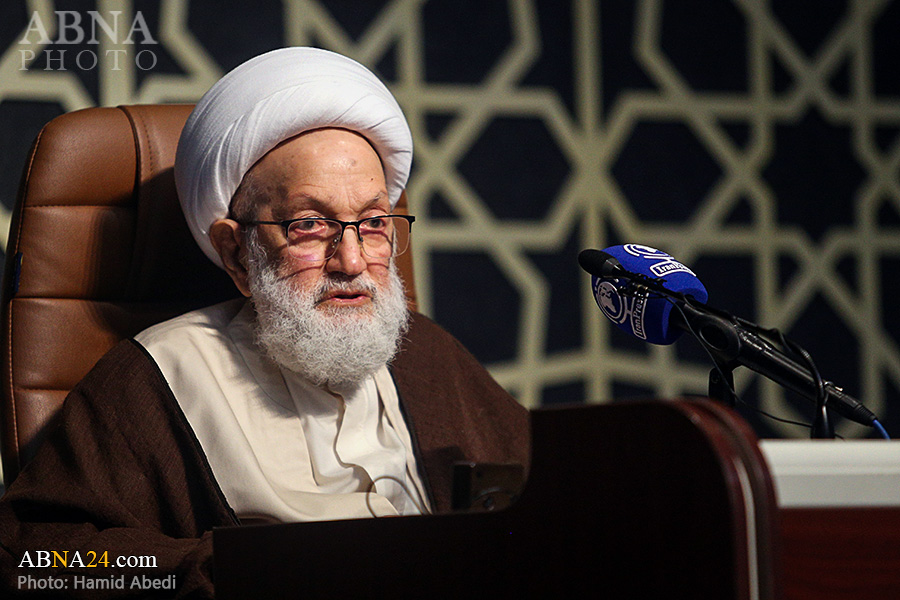AhlulBayt News Agency (ABNA): Bahrain’s most prominent cleric Ayatollah Sheikh Isa Qassim says the anniversary of the country’s 2011 popular uprising against the ruling Al Khalifah regime is an occasion to renew allegiance to changing the black history of the Persian Gulf country.
Sheikh Qassim called on Bahrainis to double down on their efforts for change during a ceremony in the holy Iranian city of Qom on Monday evening, on the eve of the February 14 Revolution.
He censured the Manama regime for marginalizing Bahraini people, clampdown on seminaries and religious schools, and attempting to Judaize the Arab nation.
The senior cleric slammed the flagrant violation of the rights of political opponents and pro-democracy campaigners, who are incarcerated at the Bahraini regime’s jails and detention centers.
He said some of those who have been released from prison are either physically disabled or have been mentally tortured.
During his televised speech, Sheikh Qassim also said that the Tel Aviv regime, through the normalization project, chiefly seeks to alienate Muslim societies and push them to accept Western civilization and serve its material goals.
He lashed at the Al Khalifah regime over disallowing rallies in condemnation of recent desecrations of the Holy Qur’an and Islamophobic acts, warning it would not take long for Bahrainis to be obligated to apply for permits for congregational prayers and religious rituals in case state officials do not change their repressive policies.
Anti-monarchy demonstrations began on February 14, 2011, and have been held on a regular basis ever since the popular uprising started.
Demonstrators demand that the Al Khalifah regime relinquish power, and a democratic, just system representing all Bahrainis be established.
The ruthless Manama regime, however, has responded to demands for social equality with an iron fist, clamping down on voices of dissent.
In March 2017, Bahrain’s parliament approved the trial of opposition civilians at military tribunals in a measure blasted by human rights campaigners as being tantamount to the imposition of an undeclared martial law.
The monarch, King Hamad, ratified the constitutional amendment in April 2017, bringing about further suppression of political dissent on the tiny Persian Gulf Island under the strong influence of the Saudi regime.
........................
End/ 257

